- How to Choose a Plant-Based Protein Powder
- Best Plant-Based Protein Powder Blends
- Best Pea Protein Powder
- Best Rice Protein Powder
- Best Hemp Protein Powder
- What About Soy Protein Powder?
- Best Time to Have a Protein Shake
- Plant-Based Protein Powder 101
- Frequently Asked Questions
- The Best Vegan Protein Powder: Final Thoughts
To find the best vegan protein powder, I have tested and analyzed numerous natural protein supplements that contain only clean ingredients without any artificial flavors, sweeteners, fillers or proprietary blends.
How to Choose a Plant-Based Protein Powder
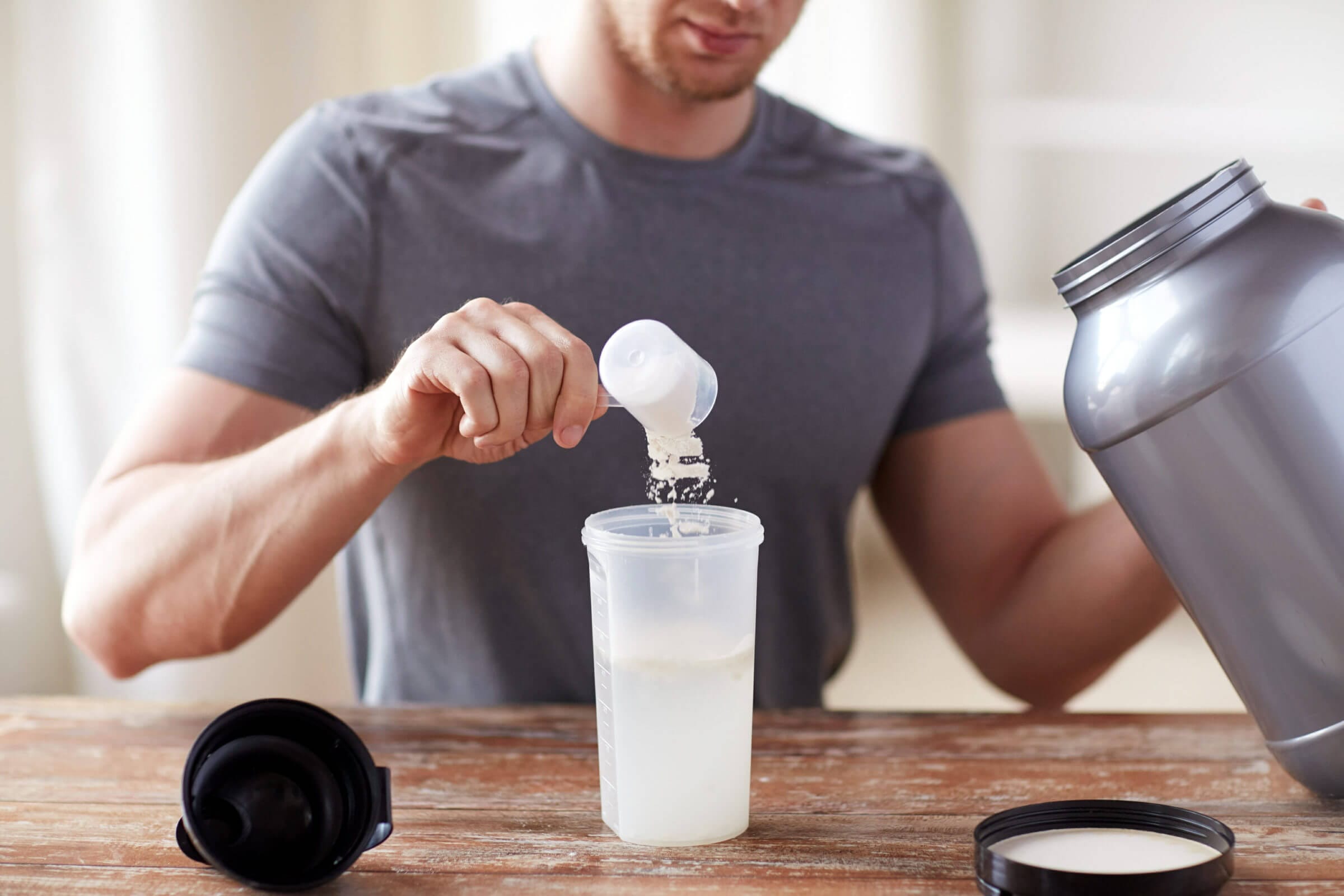
The workout supplement market is flooded with cheap, ineffective and sometimes unhealthy products that can make you sick. That’s because the Food and Drug Administration (FDA) doesn’t regulate the supplement industry as rigorously as it regulates drug makers.
As a result, manufacturers can claim virtually whatever they want on their labels. That makes it difficult for people who follow a plant-based diet to identify products that actually work.
Unfortunately, most workout supplements are ineffective and a waste of money.
I’ve noticed that the most popular supplement brands — such as the ones you can find at Walmart, Costco and even Whole Foods — offer crap products that over-promise and under-deliver.
What’s worse, they often contain inflammatory ingredients such as artificial flavors, colors and sweeteners that increase your long-term risk of developing a chronic disease.
All the vegan protein powders I cover in this review are natural and free of those inflammatory ingredients. Instead, they contain carefully-processed protein from plant-based sources.
Best Plant-Based Protein Powder Blends
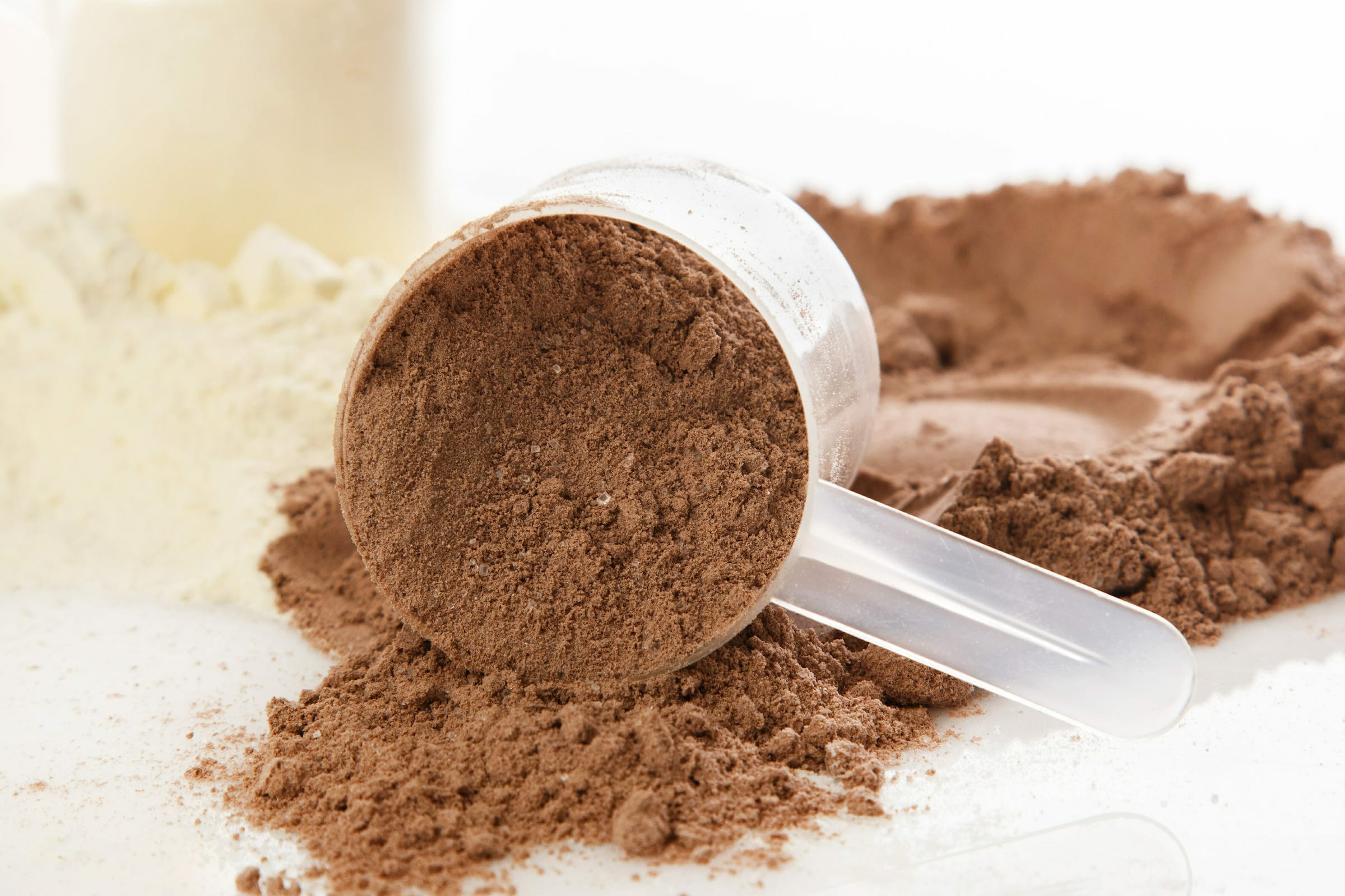
The plant protein powders in this category contain a blend of two or more protein sources, which results in a more robust amino acid profile and improved bioavailability.
1. Nature’s Best Plant-Based Protein by Isopure
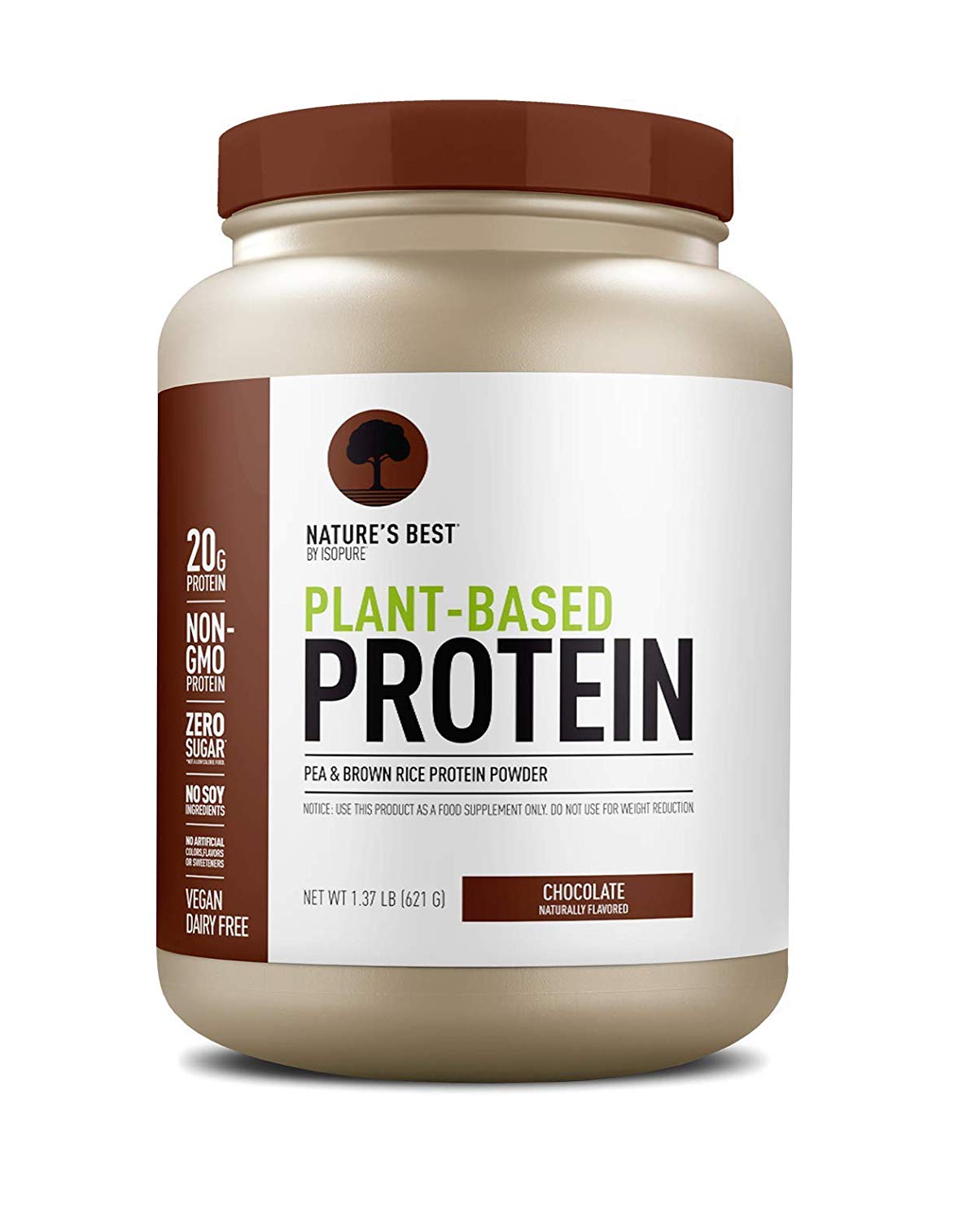
Pros
- Price.
- Blend of pea and rice protein.
- No added sugars and only 2 grams of net carbs.
Nature’s Best plant-based protein is a high-quality blend of organic pea and rice protein. As a result, you get an excellent mix of slow and intermediate absorbing amino acids.
This protein powder is available plain or in chocolate or strawberry flavors, so you can mix it with water or your favorite nut milk (or even add it to a smoothie).
Nutritional Information
| Protein type | Organic pea protein, organic brown rice protein |
| Absorption rate | Slow and intermediate |
| BCAAs per serving | Unknown |
| Flavors | Plain, chocolate, strawberry |
| Additional ingredients | 7 |
| Servings | 20 |
| Protein per serving | 20 grams |
This protein powder is non-GMO and has only 2 grams of net carbs per serving, thus making it keto-friendly as well.
2. Organifi Complete Protein
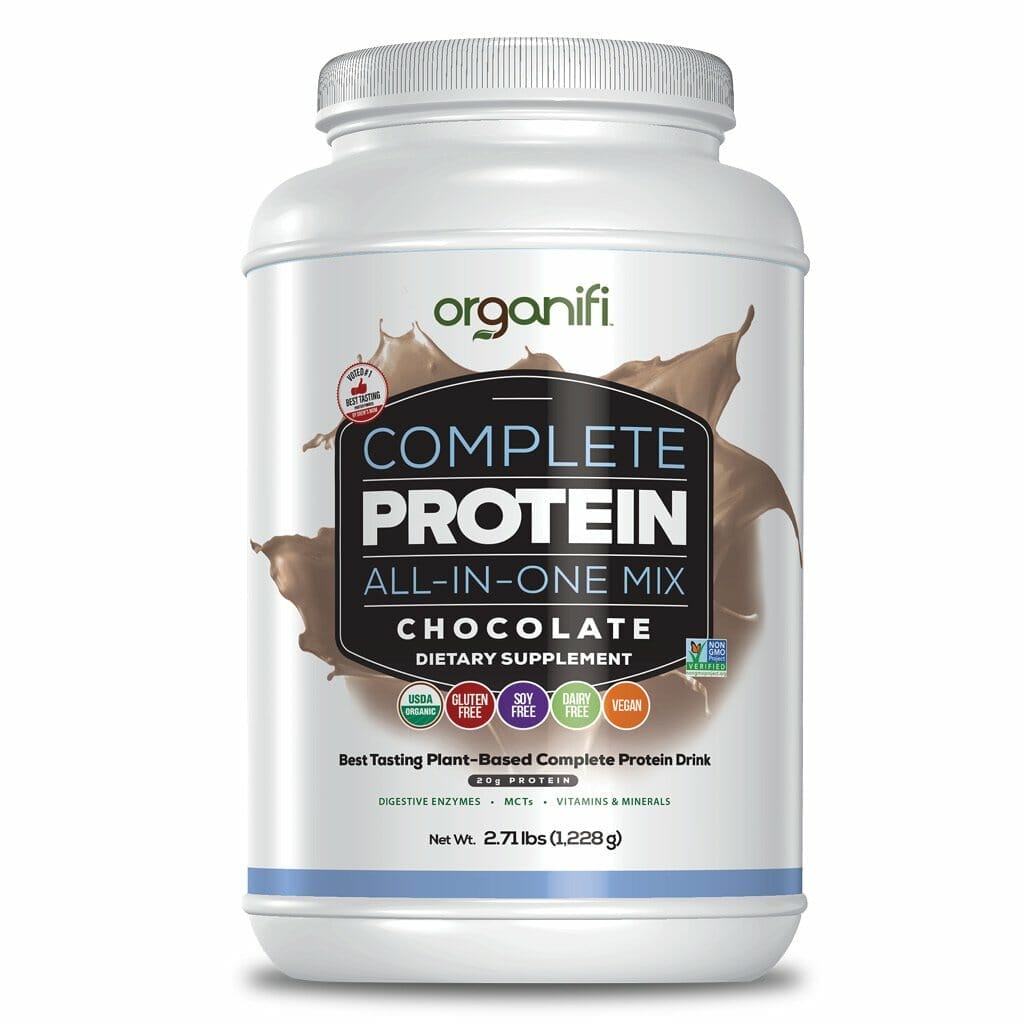
Pros
- Blend of three protein sources.
- Packed with micronutrients.
- Includes digestive enzymes.
Organifi’s all-in-one protein powder is another great choice for anyone who wants more than “just” an organic vegan protein powder.
This complete, soy-free powder contains a blend of three different types of protein, which helps improve the product’s amino acid profile.
Nutritional Information
| Protein type | Organic pea, quinoa, pumpkin seed protein |
| Absorption rate | Slow |
| BCAAs per serving | Unknown |
| Flavors | Chocolate, vanilla |
| Additional ingredients* | 8 |
| Servings | 30 |
| Protein per serving | 20 grams |
Besides the organic protein sources, Organifi Complete Protein also contains a digestive enzyme blend and a ton of micronutrients (vitamins and minerals) from whole-food sources.
Organifi uses monk fruit extract as a sweetener.
Organifi Complete Protein is also available on Amazon.
3. Vega Sport Premium Protein
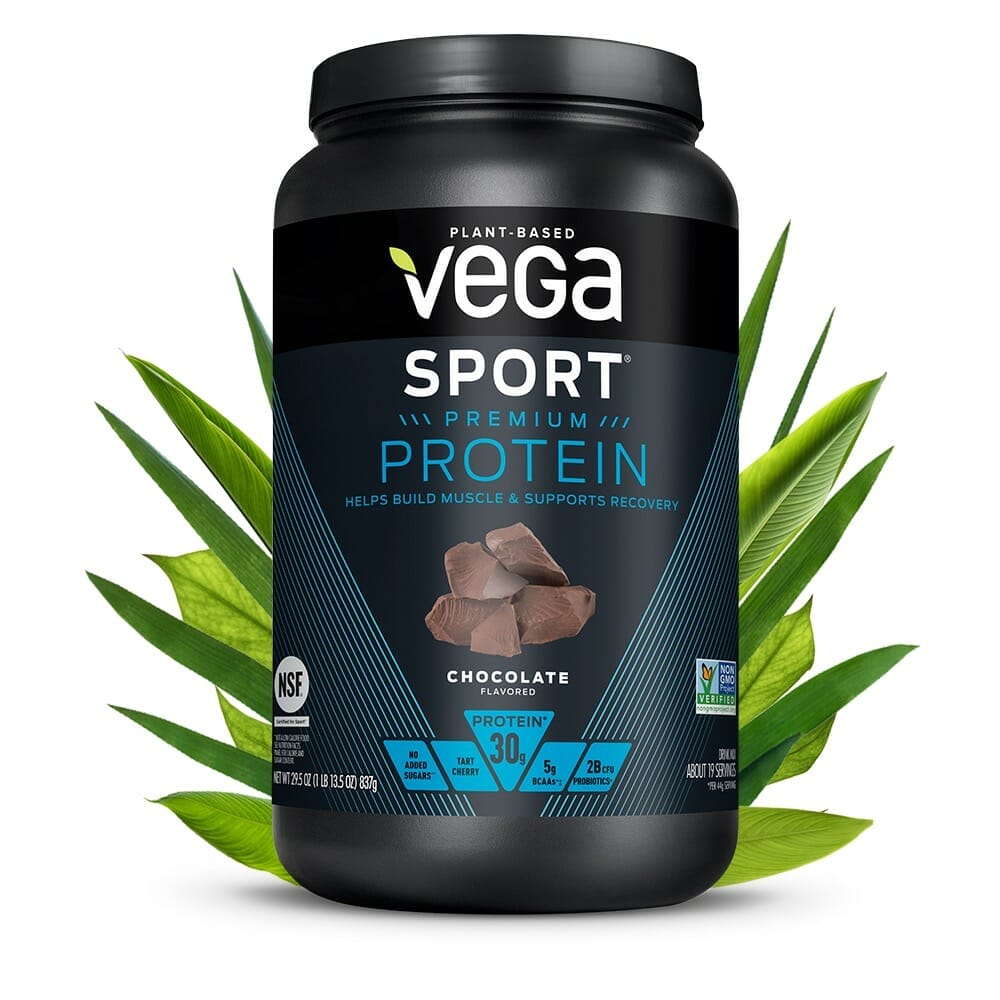
Pros
- 30 grams of protein per serving.
- Diverse protein blend.
- Keto-friendly (low-carb).
- Contains probiotics and tart cherry for recovery.
Vega Sport Premium Protein is a hybrid between traditional protein and meal replacement powders. As a result, it has higher amounts of carbs and fat than traditional protein supplements. Despite its 4 grams of net carbs, this product is still compatible with a ketogenic diet.
Nutritional Information
| Protein type | Pea, pumpkin seed, organic sunflower seed, alfalfa protein |
| Absorption rate | Slow |
| BCAAs per serving | 5 grams (2.4 grams leucine) |
| Flavors | Berry, chocolate, mocha, peanut butter, vanilla |
| Additional ingredients | 11 |
| Servings | 45 |
| Protein per serving | 30 grams |
The advantage of complete protein blends like this one is that they’re a significant source of BCAAs and leucine (among other micronutrients).
For example, Vega Sport contains 2 billion CFU of probiotics, as well as tart cherry to support recovery.
Vega Sport Premium Protein is also available on Amazon.
Best Pea Protein Powder
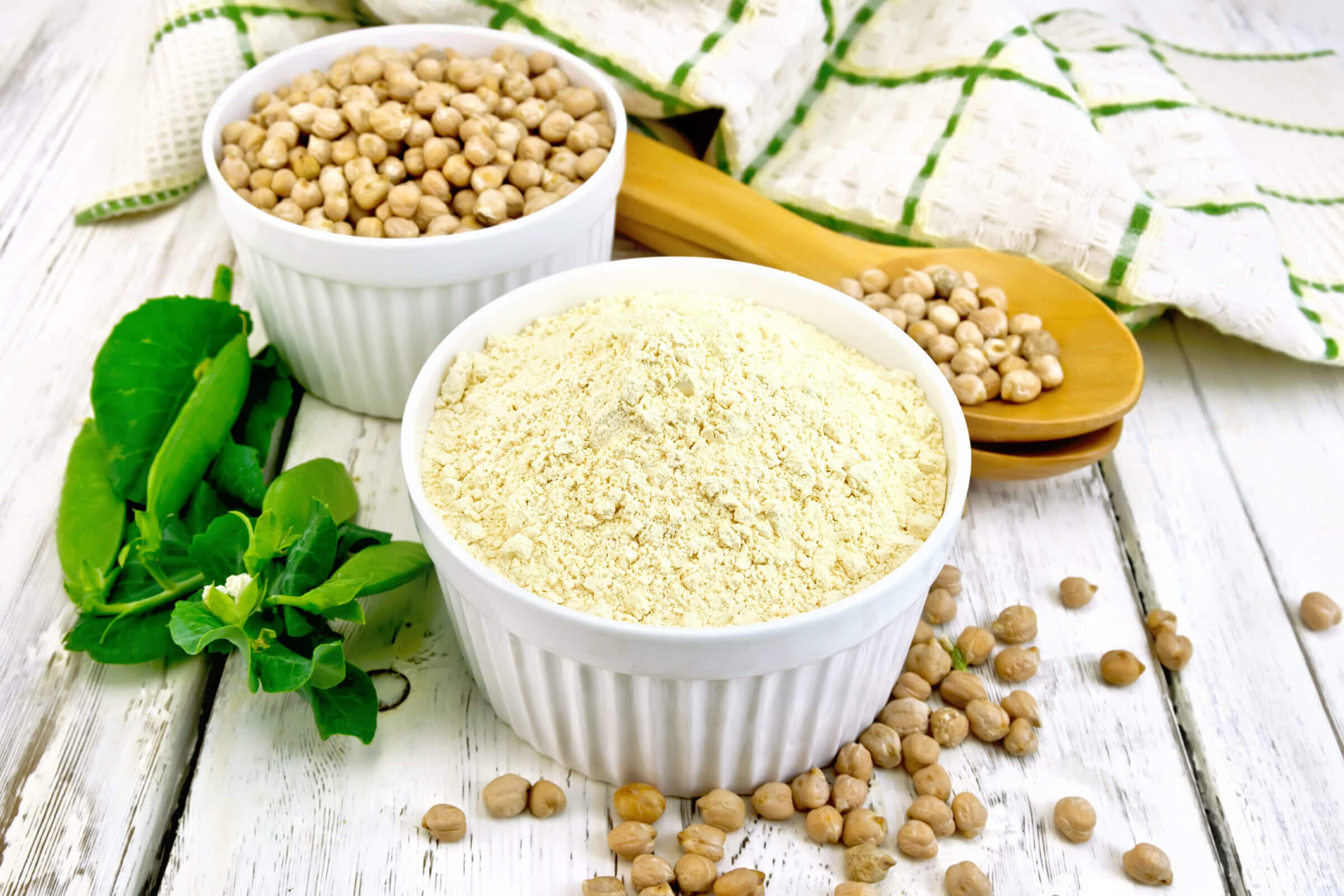
A popular option among vegans and vegetarians is pea protein powder. It’s slow-absorbing and less bioavailable compared to brown rice protein, based on the PDCAAS scoring metric.
If I were a vegan or vegetarian, I’d be OK with consuming pea protein powder as part of my meal replacement shakes. But if I had the option, I’d use it in combination with rice protein powder for building muscles and for recovery.
1. Naked Nutrition Naked Pea
Pros
- Vegan.
- Non-GMO, soy-free, dairy-free and gluten-free.
- Produced using environmentally-friendly farming practices.
- Slow absorption.
Naked Nutrition makes this product by extracting the soluble pea protein instead of just grinding peas, which would result in starches and fiber being included in the mix.
Fun fact: peas aren’t legumes like many people think — only the pea pods are. Instead, they belong to the pulse family.
The company uses a mechanical water-extraction method without chemicals to process Naked Pea, thus delivering an incredible amino acid profile featuring 5.7 grams of BCAAs and 2.7 grams of leucine.
The product is also one of the least expensive protein supplements on this list, with a cost per serving of only 27 cents.
Nutritional Information
| Protein type | Yellow pea protein |
| Absorption rate | Slow |
| BCAAs per serving | 5.7 grams (2.7 grams leucine) |
| Flavors | Plain, chocolate, vanilla |
| Additional ingredients | None |
| Servings | 76 |
| Protein per serving | 27 grams |
Additionally, Naked Nutrition offers “less naked” flavors, including chocolate and vanilla. Both flavors contain organic coconut sugar as a sweetener.
In addition to a one-time purchase, Naked Nutrition offers a lower-priced subscription for all of its products.
Naked Pea is also available on Amazon.
2. Do Vitamins PerfectPea
Note: I learned that Do Vitamins discontinued PerfectPea — at least for now (as the company said).
Pros
- Zero additional ingredients.
- Domestically sourced and processed.
- Organic.
- Carefully processed.
- Slow absorption.
According to Do Vitamins, PerfectPea is the only organic pea protein powder that is 100% sourced, processed and packaged in North America. Other manufacturers often source or process their peas in Asia.
PerfectPea is a vegan protein powder. It’s only available unflavored, and it’s the only pea-based product in this review that has the USDA Organic certification.
Nutritional Information
| Protein type | Organic pea protein |
| Absorption rate | Slow |
| BCAAs per serving | 3.5 grams (1.6 grams leucine) |
| Flavors | Plain |
| Additional ingredients | None |
| Servings | 20 |
| Protein per serving | 20 grams |
PerfectPea has a neutral taste and a smooth texture. As part of this review, I mixed it into post-workout protein shakes together with banana and plain kefir.
Best Rice Protein Powder
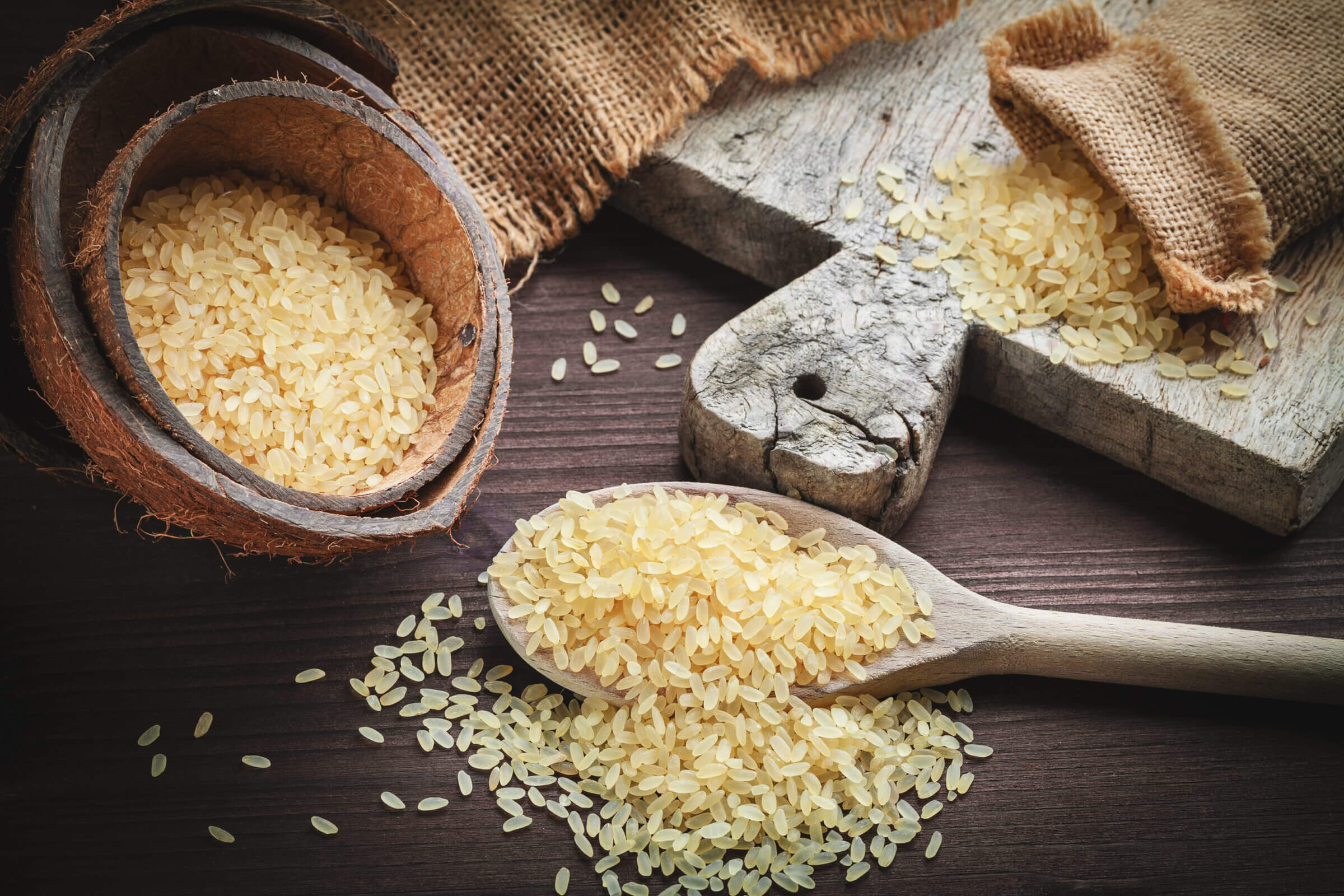
Rice protein is an excellent intermediate/fast absorbing option for those who don’t want to consume animal protein. Intermediate/fast absorbing means that your body absorbs rice protein slower than whey protein powder, but faster than casein or egg white protein.
Besides the overall absorption rate, a 2014 study by researchers at the University of Tampa (download PDF) discovered that the body absorbs the amino acid leucine from rice protein faster than from whey protein. That’s worth noting because leucine is one of the most potent amino acids for building muscle.
1. Naked Nutrition Naked Rice
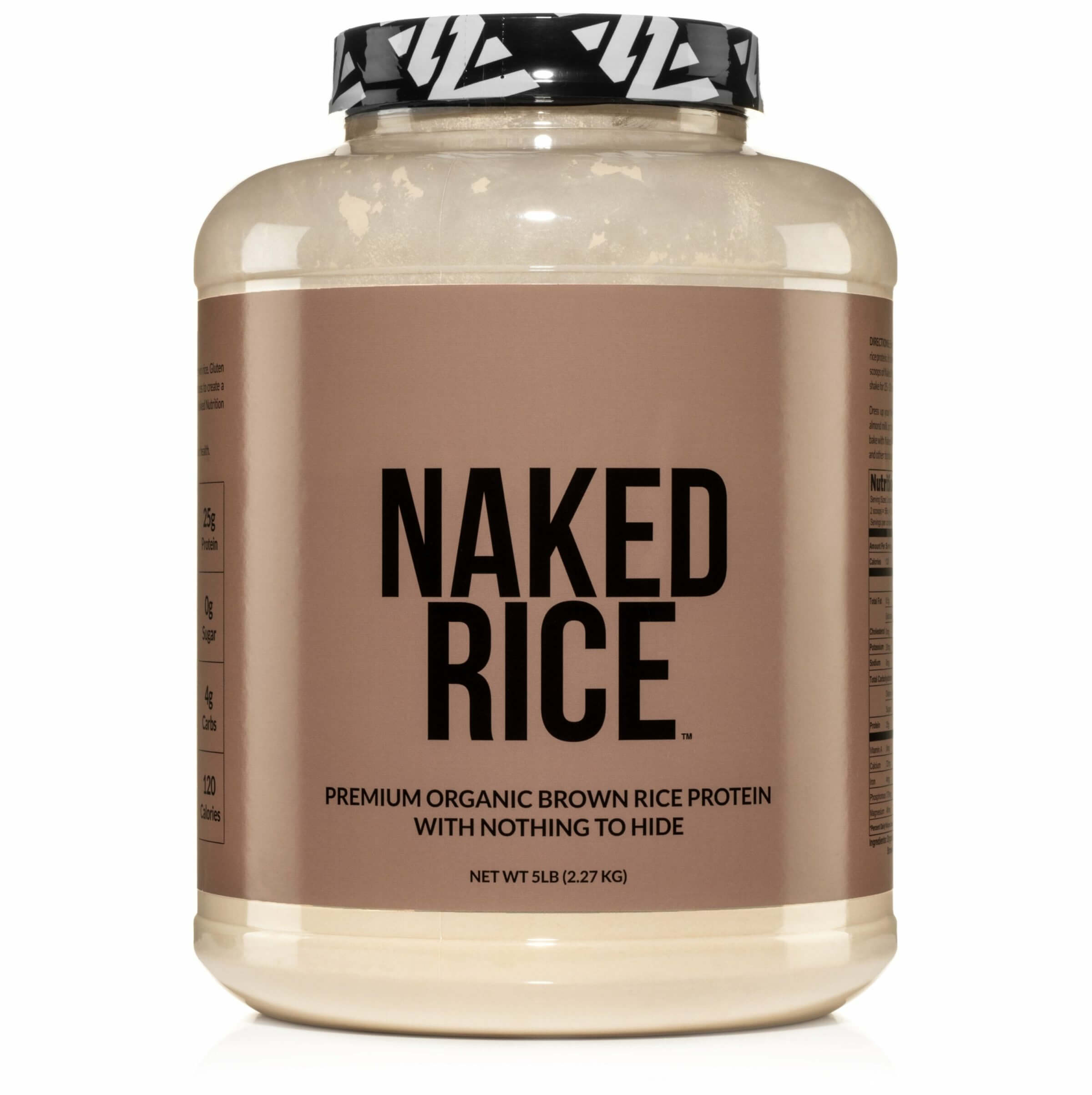
Pros
- Reasonable alternative to whey protein.
- Vegan.
- Non-GMO, soy-free, dairy-free, gluten-free.
- Hexane-free extraction process.
- Absorbs reasonably fast but slower than whey.
Cons
- Brown rice has higher concentrations of antinutrients than white rice.
Naked Rice is only available unflavored, and if I had to guess that’s because its “neutral” taste is difficult to mask. It doesn’t taste bad by any means, but it does taste like you’re drinking ground-up brown rice.
I have used Naked Rice to make smoothies, and despite all the other ingredients, I could still taste the rice protein powder.
Aside from the distinctive taste and texture of this rice protein powder, it’s arguably one of the best plant-based (vegan) alternatives to whey protein.
The only issue with brown rice (and brown rice protein) is that it contains much higher concentrations of defense chemicals, such as antinutrients, than white rice.
Nutritional Information
| Protein type | Organic sprouted brown rice protein |
| Absorption rate | Intermediate |
| BCAAs per serving | 4.9 grams (2 grams leucine) |
| Flavors | Plain only |
| Additional ingredients | None |
| Servings | 76 |
| Protein per serving | 25 grams |
Many other manufacturers use the chemical hexane to extract protein from rice, but Naked Nutrition doesn’t, thus creating a protein with an excellent amino acid profile.
In addition to a one-time purchase, Naked Nutrition also offers a lower-priced subscription for all of its products.
Best Hemp Protein Powder
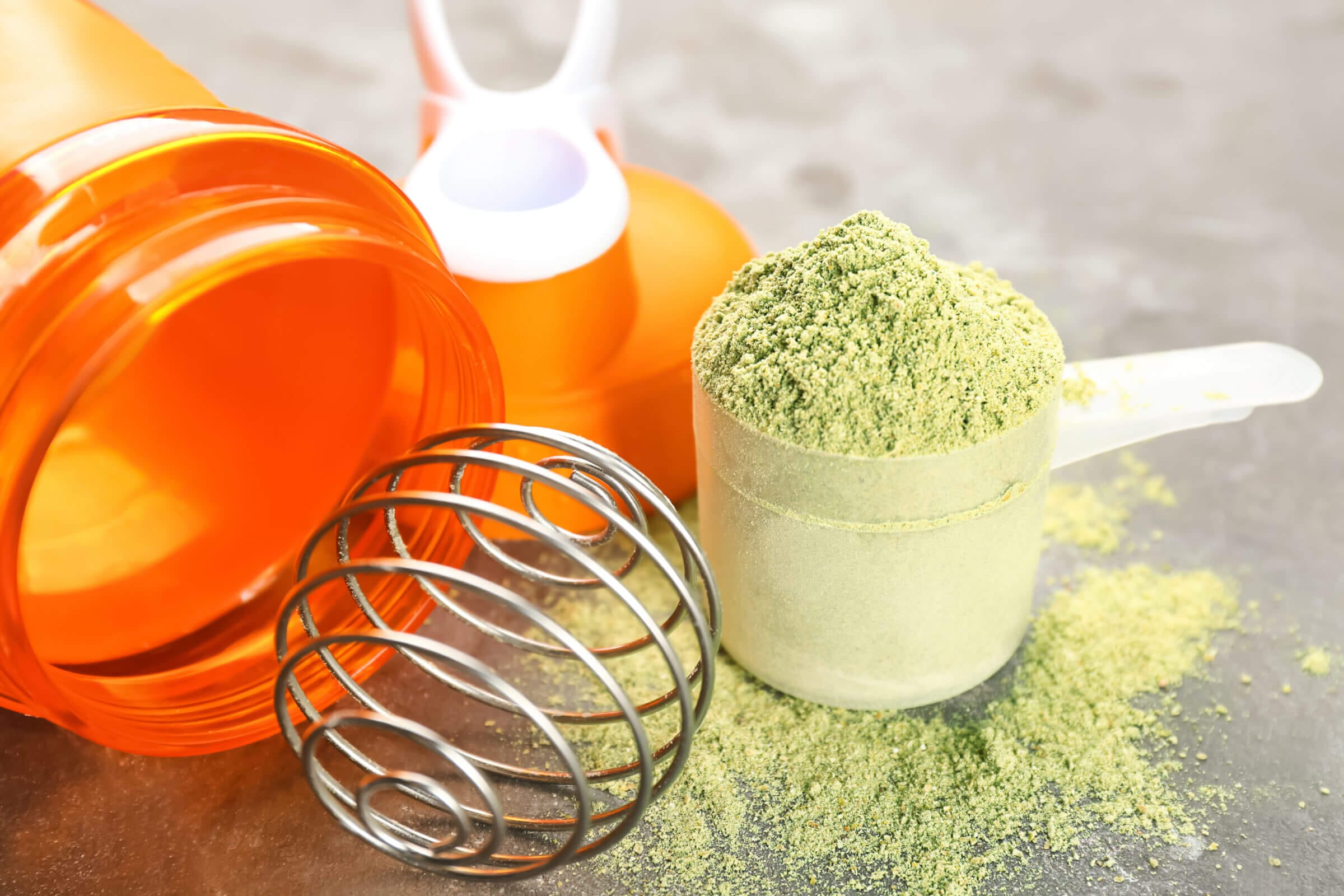
Manufacturers extract hemp protein from hemp seeds, which are rich in potassium and omega-3 fatty acids. Despite its nutritional benefits, hemp often contains less protein per serving than pea protein or rice protein, and its bioavailability is much lower than that of other protein sources.
As a result, you can consider supplementing with hemp protein powder, but I wouldn’t use it instead of more bioavailable types of protein.
1. Nutiva Organic Hemp Seed Protein
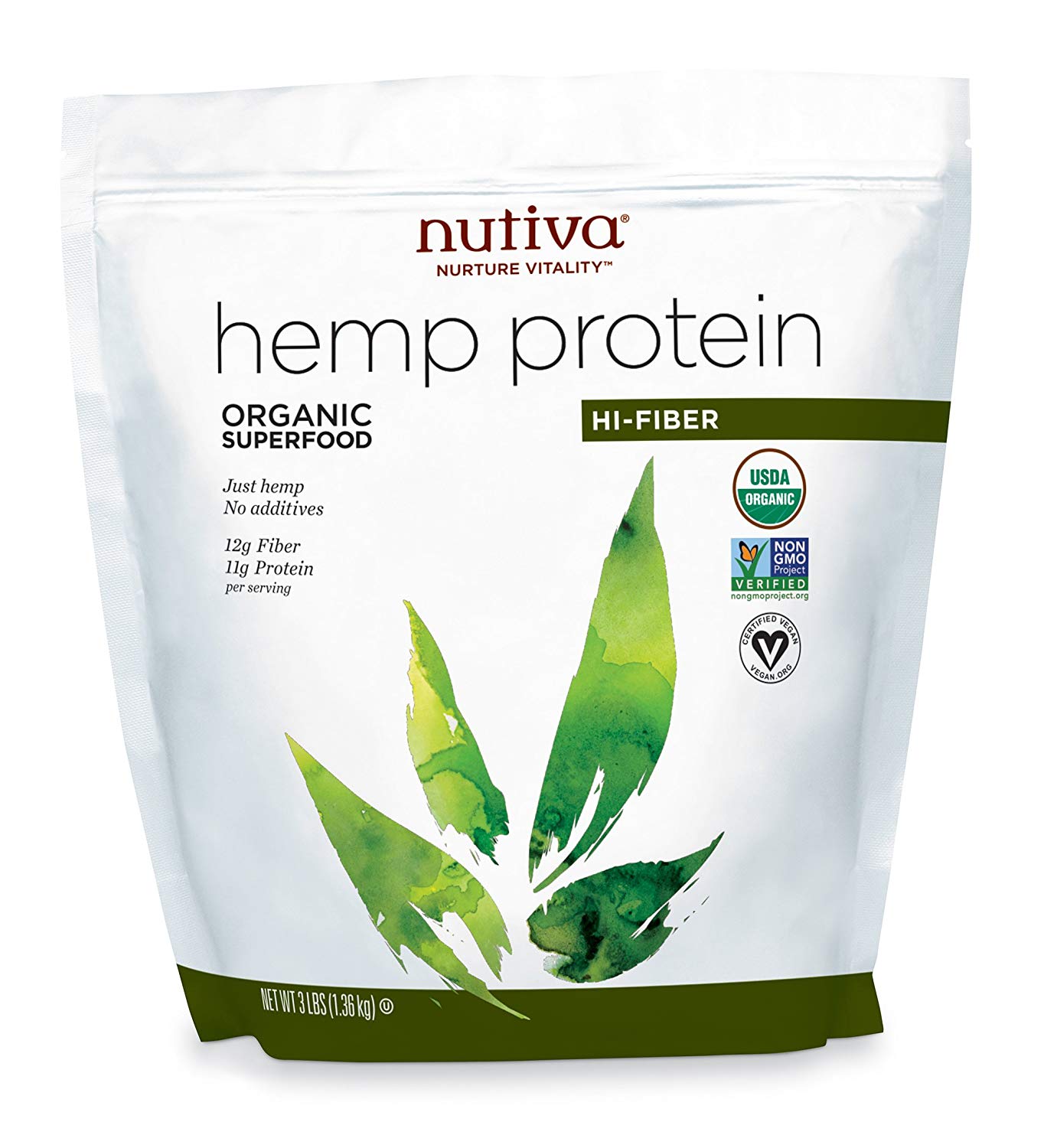
Pros
- Contains only hemp with no additional ingredients.
We use several products from Nutiva in our household (including their organic coconut oil and shortening) because the company focuses on high-quality ingredients without taking shortcuts in the production process.
The organic hemp protein powder they offer is no different, and it’s an excellent choice if you’re specifically looking for that type of protein.
Nutritional Information
| Protein type | Organic, cold-processed hemp seed protein |
| Absorption rate | Slow |
| BCAAs per serving | 1.5 grams (0.6 grams leucine) |
| Flavors | Plain |
| Additional ingredients | None |
| Servings | 45 |
| Protein per serving | 11 grams |
As mentioned above, hemp is not the best protein choice when it comes to absorbability and bioavailability. Plus, it’s got a relatively weak amino acid profile with low amounts of BCAAs, and of leucine in particular.
What About Soy Protein Powder?
Soybeans are an inexpensive yet incredibly unhealthy source of protein. That’s because soy contains lectins, a type of protein that confuses your body’s hunger and energy expenditure signals.
As such, I did not include any soy protein supplements in this review. I recommend you stay away from soy protein altogether.
To learn more about the dangers of soy, check out my review of Soylent, a popular but unhealthy vegan meal replacement shake.
Best Time to Have a Protein Shake
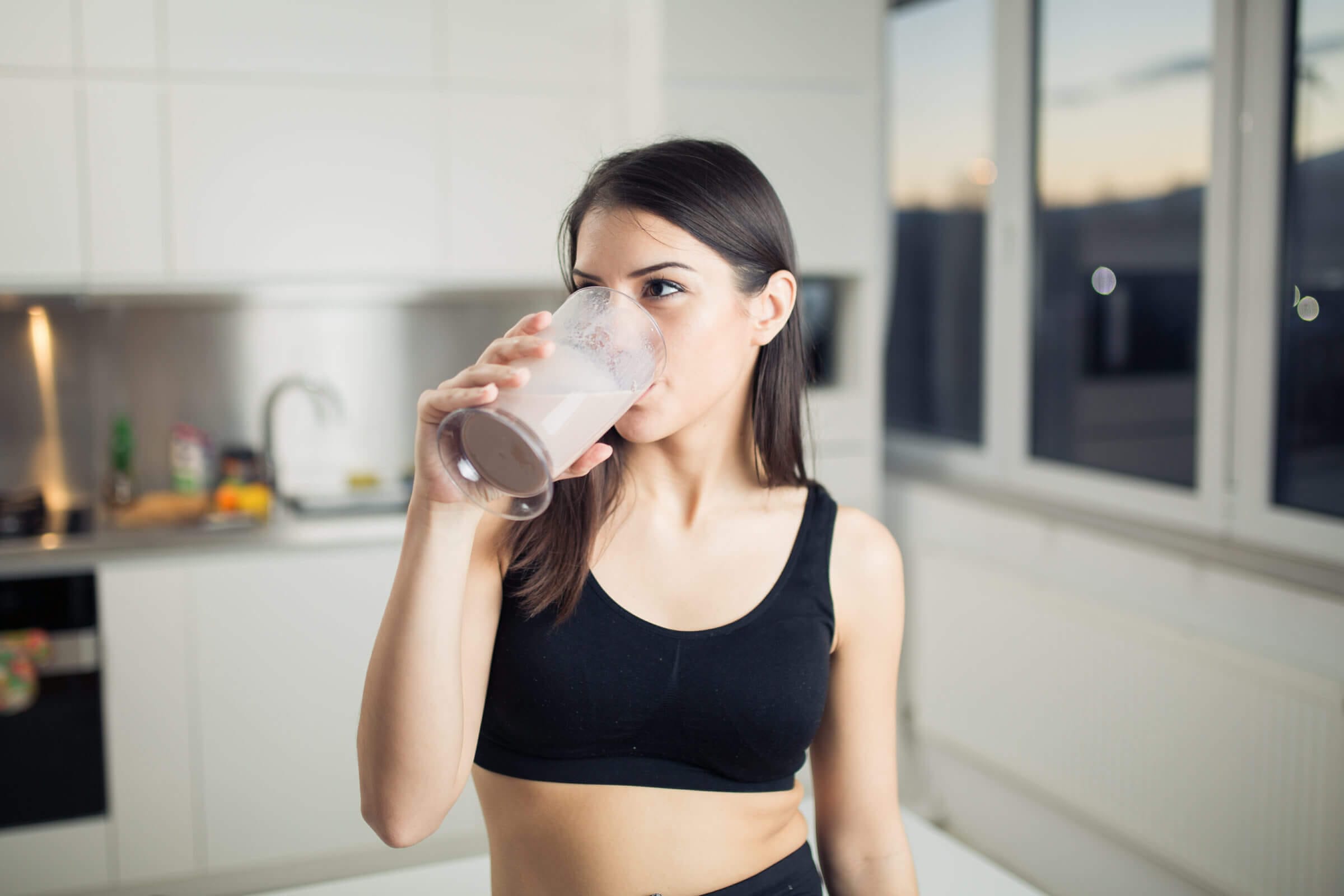
The common advice is to have a protein shake or smoothie immediately after a workout, because that’s when your body can best utilize the influx of nutrients.
While it’s true that there’s a “metabolic window” of 30-60 minutes after a workout, don’t stress out about the timing of your protein intake. Depending on how many grams of protein your vegan protein shake has, your body won’t likely be able to absorb it all within an hour.
My recommendation is to ensure you get enough protein throughout the day — be it as part of your meals or via a smoothie. In the latter case, I recommend using a blend of different protein sources to improve the amino acid coverage and absorption rate.
Plant-Based Protein Powder 101
If you’re new to protein powders — or workout supplements in general — here is some additional information and a few terms you should become familiar with.
Animal-Based Protein vs. Plant-Based Protein
If you follow a plant-based diet, you probably know that getting all the essential amino acids that your body needs from the food you eat is challenging.
That’s because, compared to animal protein, most plant-based protein has an incomplete amino acid profile and a lower absorption rate.
In a nutshell, most animal protein has a complete amino acid profile, whereas most plant-based protein does not.
That’s why I recommend using a variety of plant-based protein powders if you follow a vegan diet. That way, you can improve your chances of providing your body with all the essential amino acids it needs.
To give you a better understanding of the various absorption rates, here’s a list of different protein supplements and their biological properties.
A term to pay close attention to is the so-called Digestible Indispensable Amino Acid Score (DIAAS), which addresses some of the shortcomings of the Protein Digestibility Corrected Amino Acid Score (PDCAAS).
Both scores measure the protein’s value in human nutrition, but the PDCAAS doesn’t take into account certain anti-nutrient factors that limit the absorption of protein and other nutrients.
As a result, some lower-quality proteins had high PDCAAS scores, which didn’t accurately reflect the protein’s overall nutritional value.
| Protein | Type | Absorption | PDCAAS | DIAAS |
|---|---|---|---|---|
| Whey protein concentrate | Animal | Fast | 1.00 | 1.1 |
| Whey protein isolate | Animal | Fast | 1.00 | 1.25 |
| Casein protein | Animal | Slow | 1.00 | N/A |
| Beef protein | Animal | Slow | 0.92 | 1.10 |
| Egg white protein | Animal | Slow | 1.00 | 1.18 (whole egg) |
| Collagen, hydrolyzed | Animal | Very fast | 1.00 | N/A |
| Hemp protein | Plant | Slow | 0.61 | N/A |
| Pea protein isolate | Plant | Slow | 0.85 | 0.95 |
| Rice protein | Plant | Slow | 1.00 | 0.57 |
| Soy protein isolate | Plant | Slow | 1.00 | 1.0 |
For both standards, higher numbers reflect a better score. Both the DIAAS and the PDCAAS score supersede previous rating standards, including the Biological Value (BV), which measured the protein quality by “calculating the nitrogen used for tissue formation divided by the nitrogen absorbed from food.”
Unfortunately, I couldn’t find DIAAS scores for every protein type, but I’ll try to get more information from the manufacturers.
For a more in-depth analysis of protein quality, check out this paper on dietary protein quality evaluation in human nutrition.
Protein Absorption Rates
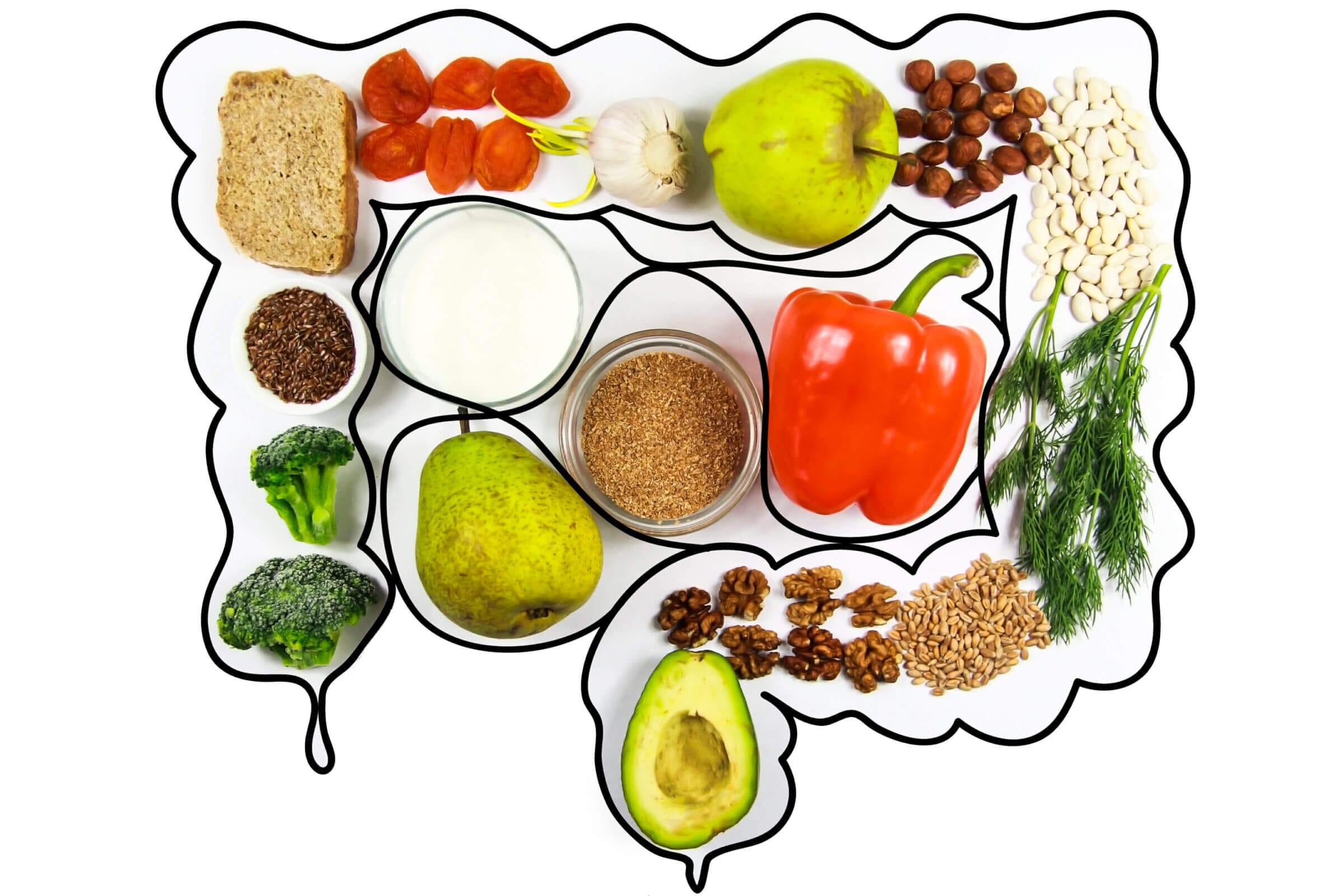
The human body absorbs dietary protein at different rates, as you can see in the table below. Besides the absorption rate, it’s also important to understand how long it takes for the amino acids in the protein to reach peak blood concentration, and for how long they stay in the bloodstream.
| Protein | Absorption Rate (Grams/Hour) |
| Egg protein | 1.5 to 4 |
| Pea protein | 3.5 |
| Soy protein isolate | 3.9 |
| Casein isolate | 6.1 |
| Brown rice protein | 6 to 8 |
| Whey protein | 8 to 10 |
What about hydrolyzed collagen? In tests with rats, scientists were able to measure peak plasma concentration of hydrolyzed collagen after six hours of ingestion, when given 10 grams per kilogram of body weight.
You can find more information about the absorption rate of proteins here.
Your body can generally absorb animal protein — in particular, whey protein — faster than any plant protein. That’s why whey protein is so popular among athletes.
However, from an evolutionary perspective, humans did not consume milk protein until they started farming and domesticating animals about 10,000 years ago.
So what has been the primary source of protein for humans for the past 2.6 million years?
Muscle and organ meat — predominantly from ruminant animals. That’s why I’m a huge fan of Equip Prime Protein, which is a beef protein powder. To learn more about the differences between plants vs. meat as far as human nutrition is concerned, check out this article.
Frequently Asked Questions
When it comes to dietary supplements, the term “premium” means minimally or carefully processed ingredients of high nutritional value.
The “premium” label also indicates that the manufacturer follows specific processing standards and that the ingredients are certified to meet quality indicators related to potency, bioavailability and more.
Here’s a list of key attributes that I looked for to conduct this review. Of course, not all attributes apply to every product.
For example:
– Non-GMO
– No artificial ingredients
– Sugar-free
– Gluten-free
– GMP certified
– Third-party tested
– Free of heavy metals (important for certain protein sources, including rice)
Some companies hide potentially harmful ingredients behind the term “natural flavors.”
“Natural” flavors are often manufactured in labs, much like artificial flavors, and the final products often contain chemicals from that manufacturing process.
The problem is that the FDA requires companies to use the “natural flavors,” even if those flavors come from dehydrated sources of whole foods.
I’ve sent out inquiries to all brands to ask what’s behind their “natural flavors” and I’ll keep updating this article as I learn more.
The best source of protein is the food you eat. However, during intensive exercise, such as CrossFit, when your body breaks down muscle tissue, it may need more protein to rebuild the damaged tissue than you can supply through your diet.
If you don’t give your body the fuel it needs to recover, you run the risk of building up a recovery deficit. As a result, you may experience reduced performance and muscle gain, as well as an increased risk of injury.
You do not need protein supplements if you only exercise moderately and have a healthy diet that contains quality sources of protein.
Also, do not use protein powders as a replacement for a healthy diet. As the name “supplement” implies, they are only meant to supplement your dietary protein, not replace it.
Essential amino acids are the ones your body cannot make. As a result, you need to provide them to your body via food and your diet. Most plant-based protein doesn’t provide all the essential amino acids humans need to thrive. That’s why I recommend consuming a variety of plant proteins to improve your coverage.
Branched chain amino acids (BCAAs) are a particular type of essential amino acids and include leucine, isoleucine and valine. Those three amino acids make up approximately 35% of all muscle protein in the body. Much like other essential amino acids, the human body cannot make them.
I talked about the benefits (and lack thereof) of BCAAs in my article on natural pre-workout ingredients. The bottom line is that leucine is the most critical amino acid of the three BCAAs.
The protein powder manufacturing process is crucial in determining the quality of the final product. As with many other products, processing methods that involve low heat and no harsh chemicals (minimal processing) yield the best results.
The human body absorbs dietary protein at different rates, as you can see in the table above.
While soy lecithin doesn’t appear to contain enough soy proteins to cause an allergic reaction in people with a soy allergy, there are still pros and cons to consider with that emulsifier. But I am not too concerned about it.
The best natural non-nutritive sweeteners are stevia and monk fruit extract. The latter is more expensive, and thus less popular among manufacturers of organic protein powder supplements.
While most plants are high in fiber, plant-based protein doesn’t have any fiber. That’s because during the manufacturing process, all “impurities” — including fat, fiber and other components — are removed.
However, it’s worth noting that you don’t need fiber for optimal health.
Meal replacement shakes (as the name implies) are meant to replace a full meal. As a result, they contain fat, carbs, protein and other micronutrients, such as digestive enzymes, prebiotic fibers and probiotics.
There’s nothing wrong with drinking a meal replacement shake after a workout instead of a plain protein shake. However, if you’re counting macros and you only want to increase your protein intake — but not your fat or carb intake — I recommend sticking with protein powder instead.
That way, you can better control your fat and carb calories.
Nuts are also a source of plant-based protein. For example, we used to use almond flour — a slightly healthier alternative to grain-based flour — for baking. Theoretically, you could use blanched almond flour for shakes and smoothies, but I’d recommend against it because nuts and seeds are high in inflammatory anti-nutrients.
I’d also stay away from peanut protein powder for numerous reasons, including the toxicity of peanuts and their antinutrient content.
The Best Vegan Protein Powder: Final Thoughts
While the global supplement market is flooded with cheap and unhealthy products, it’s been my experience that manufacturers of vegan products pay slightly more attention to product quality.
I suppose that could be because vegans often know more about food than the average American. Still, finding the best vegan protein powder can prove challenging if you’re new to the plant-based dietary lifestyle.
My goal for this roundup was to share some tips and tricks on what to look out for when buying protein powders, and I hope my recommendations help point you in the right direction.
If you know of a vegan protein powder that I should include in this review, please don’t hesitate to drop me a line.
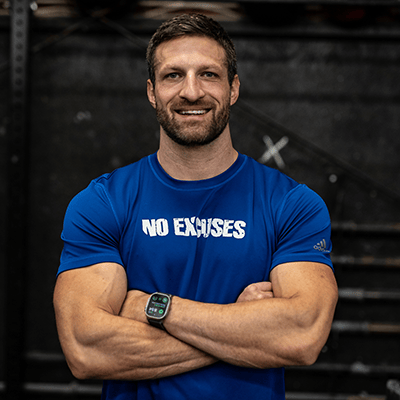
Michael is a healthy living enthusiast and CrossFit athlete whose goal is to help people achieve optimal health by bridging the gap between ancestral living and the demands of modern society.
Medical Disclaimer
The information shared on this blog is for educational purposes only, is not a substitute for the advice of medical doctors or registered dieticians (which we are not) and should not be used to prevent, diagnose, or treat any condition. Consult with a physician before starting a fitness regimen, adding supplements to your diet, or making other changes that may affect your medications, treatment plan or overall health. MichaelKummer.com and its owner MK Media Group, LLC are not liable for how you use and implement the information shared here, which is based on the opinions of the authors formed after engaging in personal use and research. We recommend products, services, or programs and are sometimes compensated for doing so as affiliates. Please read our Terms and Conditions for further information, including our privacy policy.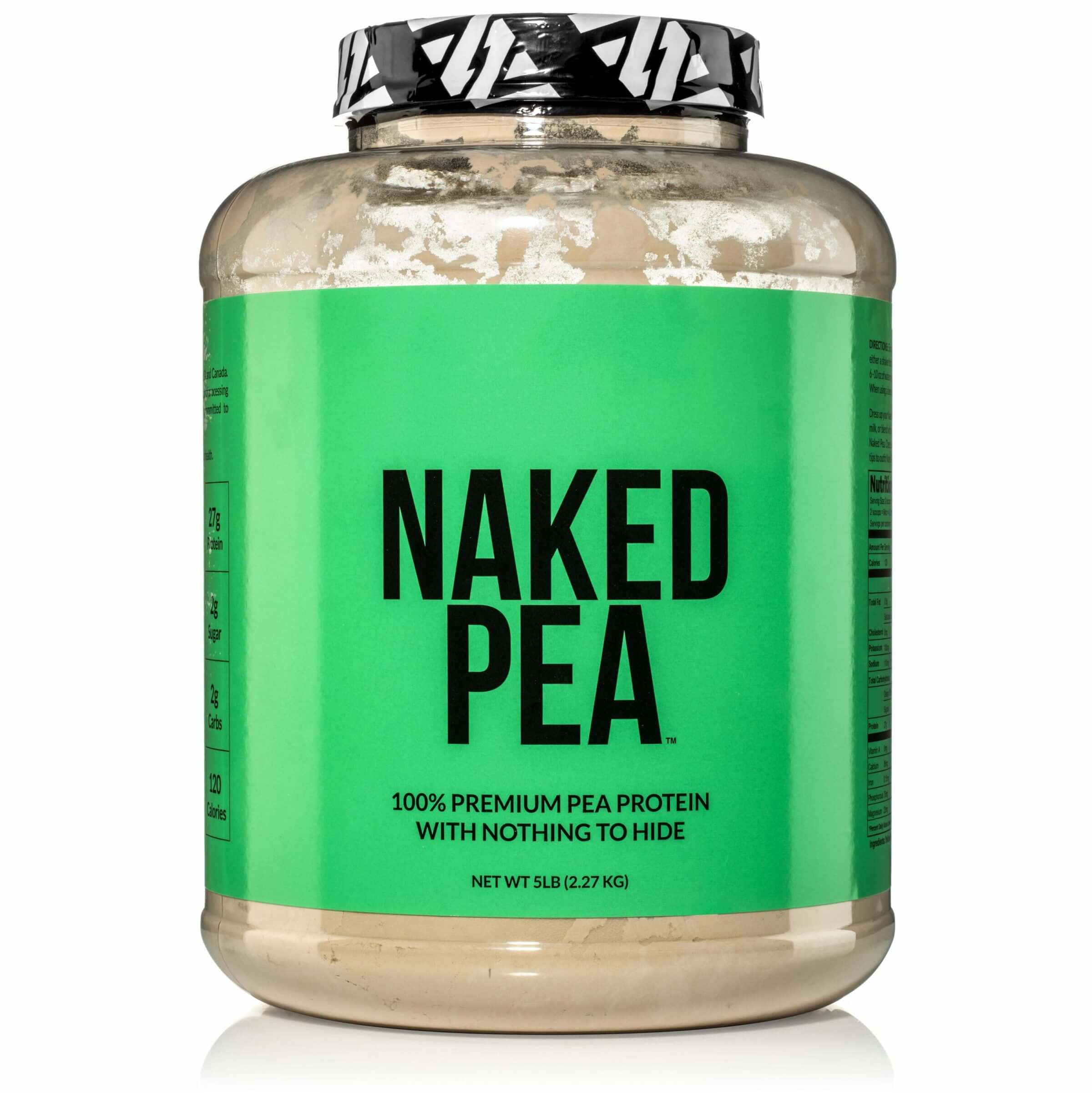
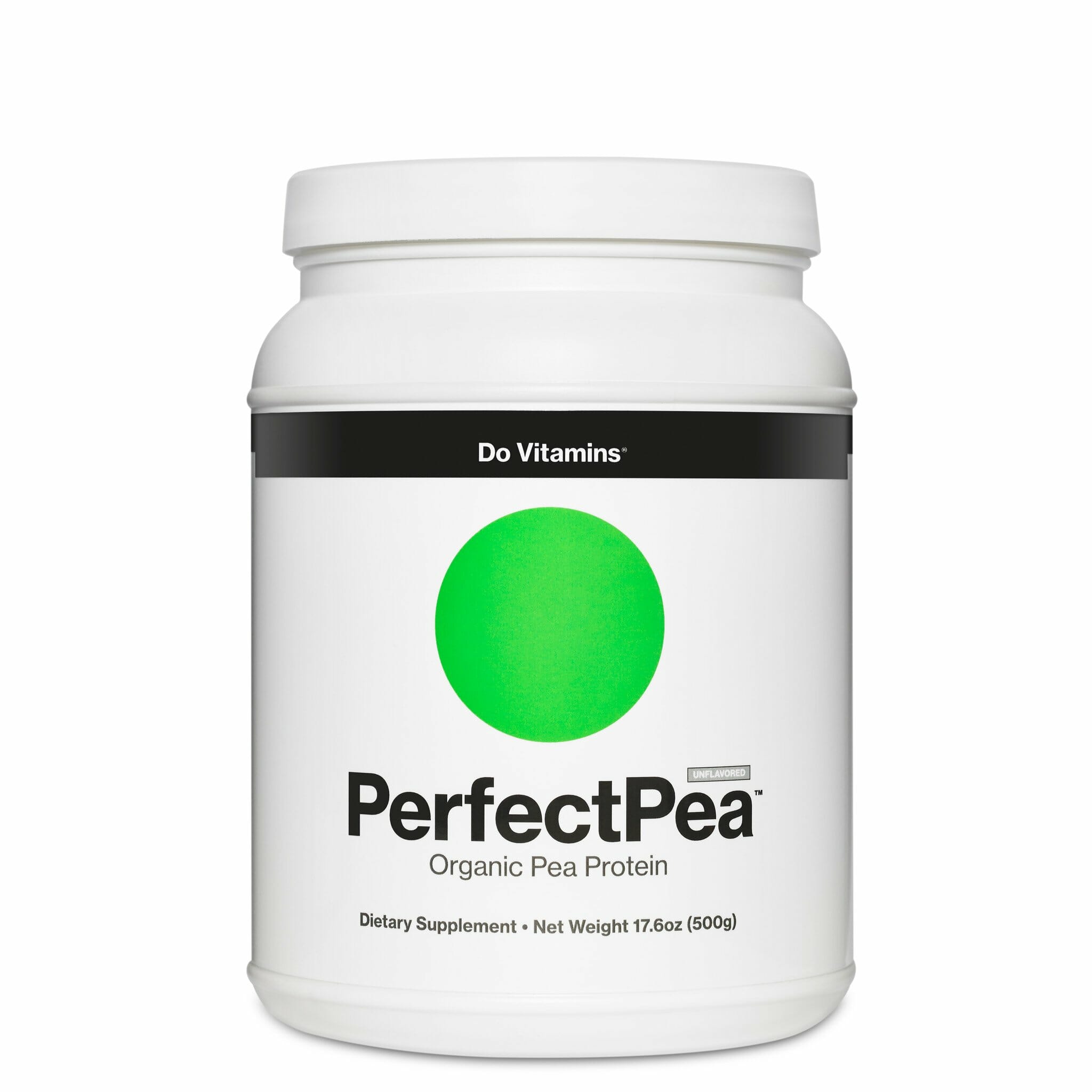
Fruits and vegetables include protein, as well as vitamins and minerals.
Yeah, plants have all of that in their least-absorbable and least-bioavailable form. They also have a lot of defense chemicals that ruin your health. See https://michaelkummer.com/health/plants-vs-meat/ to learn more.
“ That said, plant-based food is incredibly important due to its nutrients, and should thus make up a significant part of your diet…”
This quote seems to directly conflict with all the other dietary advice you give.
Hey Zach,
yeah, this is an old article that I wrote long before I discovered the negative side of plant-based foods. I’ll make a not to update it and to remove that part. Thanks for bringing that to my attention!
PS: Apologies for the late reply. Your comment got accidentally deleted by my anti-spam plugin and I just found out about it.
Thanks for reviewing as it is very important to check the proper product first. I have not purchased it yet and I just wanna need to buy one vegan protein powder for the completion of my protein intake. After visiting your blog now I am able to know so that I can not be fooled.
Thanks for sharing.
Thank you Michael for this info.